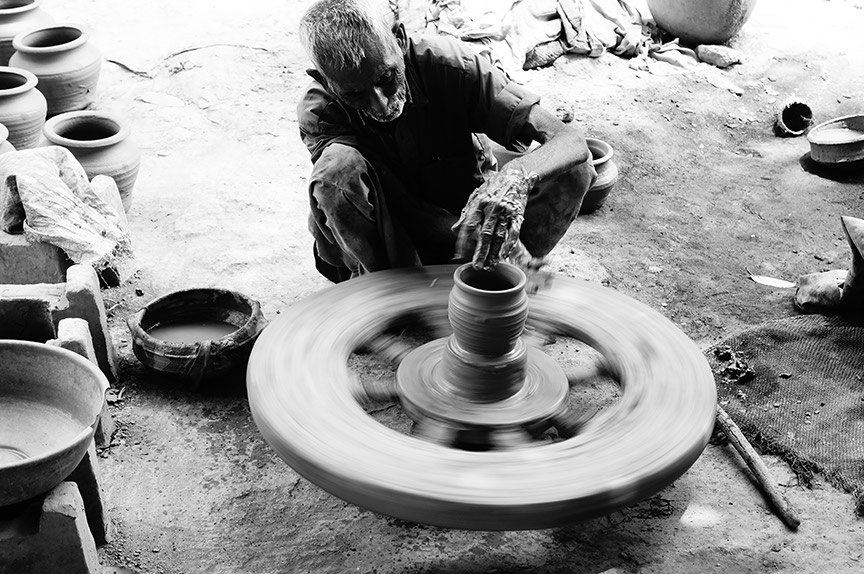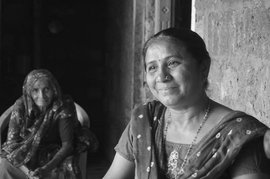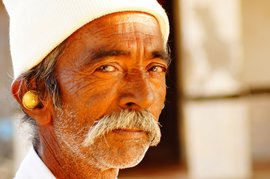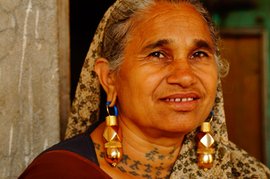Meeramanbhai Chawda became the head of his family at the age of 12. When his parents passed away, as the eldest son, he found himself in charge of supporting and raising his siblings – two brothers and two sisters. He did this by making and selling pots to local villagers and to merchants who took his wares to distant villages. He was the only potter in 10 neighbouring villages.
Many decades later, Meeraman still sits near his revolving platform, shaping a clay vessel that will fetch him Rs. 100 for an hour’s labour on a dying art. He works for four hours a day, and his income depends on the sale of the final product. On a good day, it can amount to Rs. 450 from a sale of four-five pots. But such days are rare.
“People would pay for the pots with [things like] grains, pulses, clothes and shoes. Life was good,” he says, remembering the a long-ago past. Since he was landless, this was how he procured most of his family’s rations.
Meeraman was born in Mekhadi, a village in Porbandar district of Gujarat. When he took over caring for his family, he moved with them to Chakhwa, a village in Junagadh district, then a constituency under the
nawabs
. “I was also a great help in the kitchen. The
nawaabs
would trust me to cater for their ceremonies,” he narrates with gusto.
He used to make pots for them. “Every time I was summoned by Nawab Jamal Bakhte Babi, I would walk 71 kilometres, starting early from here in the morning and reaching Junagadh in the evening. I could not afford the train fare of 12 annas as I was the sole earner of the family, with two sisters to be married,” he says.
Meeraman seems to recalls he was 33 when India got Independence in 1947. That would make him over a 100 years old now. How is he still making pots at this age? “Everyone is born to do certain work. They are bound to do that work irrespective of circumstances, almost as if they were the only one doing it. I was engaged through my childhood, my youth and my days of responsibility in this art and creation. Why should I stop now? I lived with the art and I will die with the art,” he says, as we walk to his small yard where he keeps a fascinating collection of pottery tools and implements.

Meeramanbhai Chawda: 'Everyone is born to do certain work'

Spinning the wheel and shaping a clay vessel that will fetch him Rs. 100

The wooden wheel, or ' chakkada ', is used as a platform for the mud to be shaped into pots, flower vases, buttermilk vessels, cooking utensils and other items

The platform is mounted on a pointed iron stand referred to as khal in Gujarati

This is the ‘ khal ’ or iron stand for the wheel

The pots are ready

The clay is ready to be made into pots. A stick inserted into a hole on the platform helps to keep it turning. When the platform picks up enough speed, work starts on the clay placed at the centre of the wheel

Frail fingers push in to shape the formless mud into beautiful creations like this pot, locally known as gorri . Meeraman smiles and points at me to try my hand at the potter’s wheel



